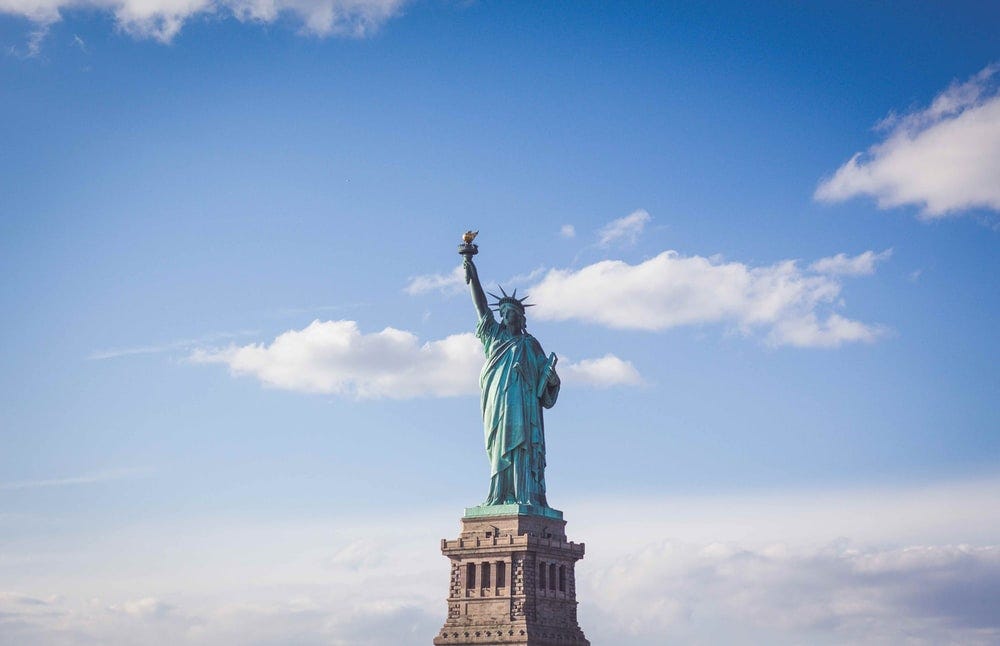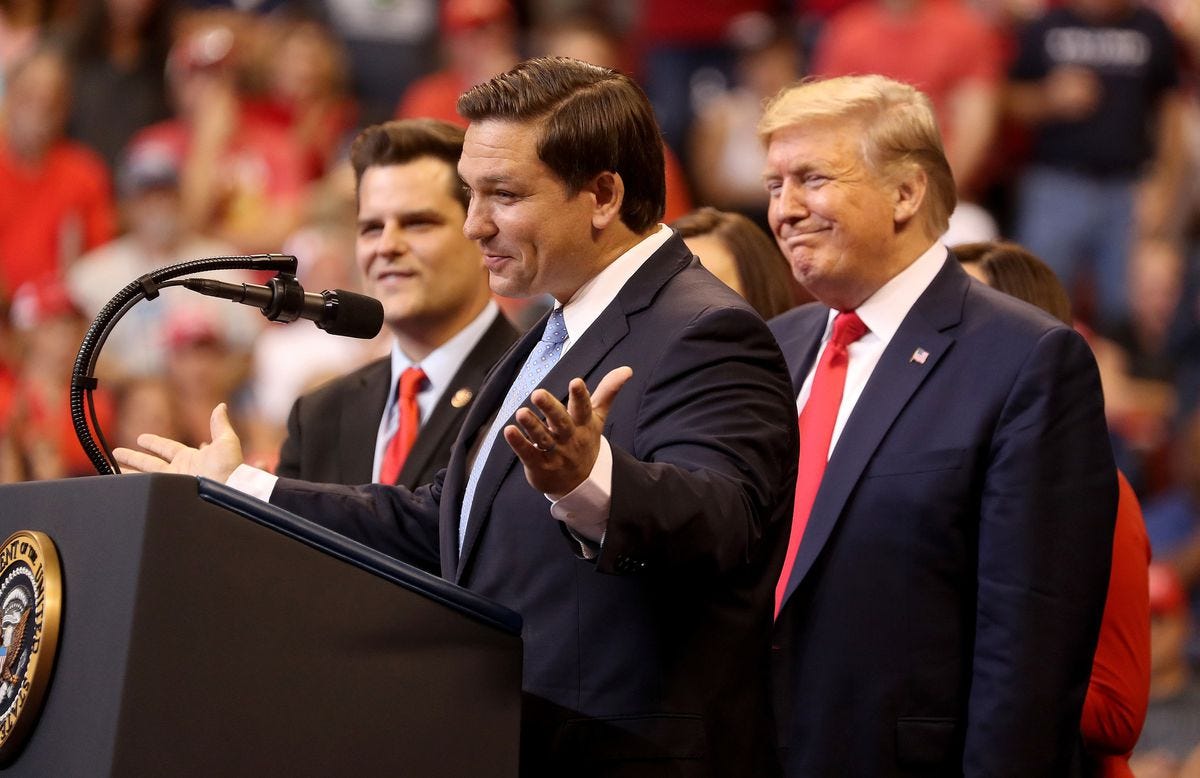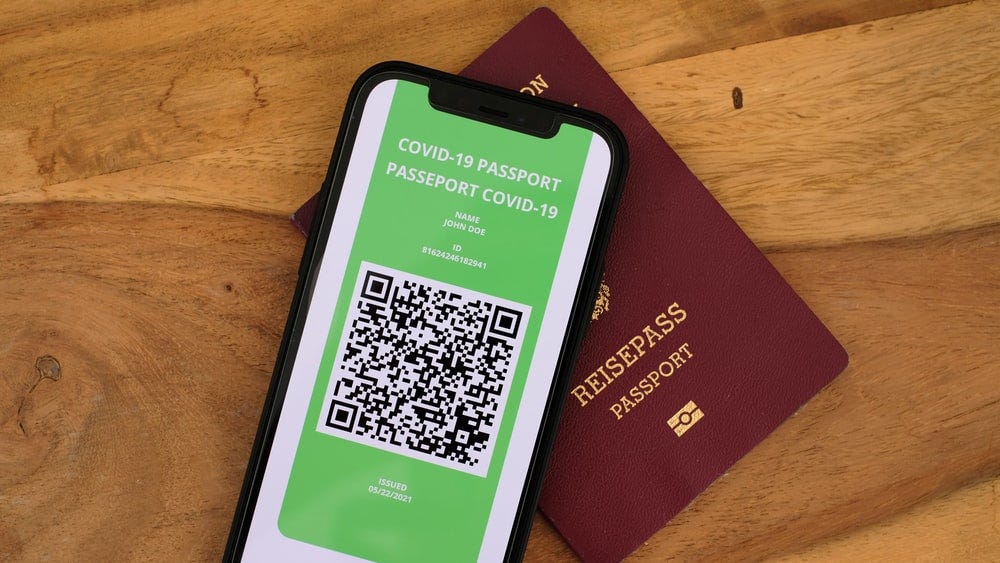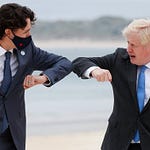Good morning, and welcome to the nineteenth issue of the Bright Morning newsletter.
🚨 Before we kick off, we would like to ask readers to please set aside a few moments and provide us with some feedback. In this article, you will find a short survey - similar to the one that we created in December - where you can let us know what, if anything, you would like to see change in our weekly articles. 🚨
What would you like to see us bring more attention to? Do you prefer Canadian or American content, or some mixture of both? How is the tone of our articles? These are the questions we are considering as we continue to develop our content and sharpen our focus. If you could set aside a few moments to let us know, we would sincerely appreciate it.
Having said that, let us dig into some of the big stories of the past week.
| CULTURE & SOCIETY
What is the role of the citizenry in perpetuating lockdowns?
Readers of last week’s article will recall us spending a considerable amount of time criticizing what we believe are illogical policies and practices from Canadian governments (at the federal and provincial levels) in response to COVID-19. The major theme that we identified was that while the rest of the world was opening up, Canada (in particular, Ontario) ushered in some of its harshest lockdown restrictions yet - including a third state of emergency, a stay-at-home order, and a prohibition against big box stores selling “non-essential items.”
There are a number of problems that we could identify, namely the massive overreach of governments determining what items are “non-essential,” but we will spare you the rant. Instead, we would like to ask an uncomfortable question that not many people are prepared to answer: what is our role, as citizens, in perpetuating these lockdowns?
Last month, an article appeared in the Toronto Sun that asked a similar question. The author, Jerry Agar, had posed this question during his radio show, and he wrote that feedback indicates “a lot of Canadians have the attitude that most people are not as smart as they are, so they support politicians who treat people like idiots.” In other words, Agar believes there is an attitude amongst certain Canadians which suggests that “I am responsible, but others are not. And henceforth, we need to be locked down.” Is he onto something?
When it comes to debates about lockdowns that we have had with peers in our own lives, we can attest to the prevalence of this attitude. There is always one question, however, that stumps our opponents: how is it moral to support policies that erode mental health, destroy the livelihoods of others, and exacerbate class inequality, when the choice ultimately falls on us, as individuals, to assess the level of risk that we want in our lives? Put differently, if we are concerned about the virus, why can we not just remain home, while adopting an attitude of indifference to those who want to continue living their lives?
Agar notes that many Canadians see the effects of lockdowns as an acceptable consequence for the “collective good,” but of course, “the people making the decisions as to who will suffer for the collective good never seem to pick themselves.” It is no coincidence that those who support lockdowns are (generally speaking) taxpayer-funded public sector workers, knowledge workers or techies, many of whom enjoy the privileges of working from home and have not experienced a loss of income, while those who oppose lockdowns are small business owners. Why is this obvious asymmetry so often buried?
Furthermore, when it comes to collective differences between Canadians and Americans, “freedom is paramount in the United States,” but not so much in Canada. According to Agar, Americans see “life as being more than merely staying alive,” and they “tend to gravitate more toward the idea that you need to know the risks for yourself and make responsible choices. If those choices don’t work out, that is on you.” Canadians, on the other hand, do not have this attitude. Resistance to government is not in our blood, whereas it is a defining feature (in fact, the inception story) of the United States.
Similarly, Canadian politicians know that they can order people around because most Canadians will not refuse. “Being polite” is a Canadian stereotype, is it not? But as any person who is even vaguely familiar with psychology will understand, being compassionate and polite is not just a virtue, but also a vice. Not having a line in the sand, boundaries, or a point at which we assertively say “no” does not make us virtuous, but it does make us weak and vulnerable to exploitation. As Jordan Peterson once said, “a harmless man is not a good man. A good man is a very dangerous man, who has that under voluntary control.” In other words, courage and virtue are not demonstrated by those who are obedient to the crowd, but instead by those who risk asserting their boundaries. However, this does not always work in favour of those who risk disobedience because, as Agar notes, “Canadians are busy hating on anyone who travels as opposed to asking whether the policies make sense. Totalitarianism relies on a division of us and them.” Thus, totalitarianism is not merely the consequence of top-down autocratic rule on an oppressed citizenry, but rather the refusal of everyday individuals to say “no.” Most people, throughout history and in the present, never consider where that line in the sand is. This is why abuse of government power will never disappear. It is a historical constant, and time is a flat circle.
What do you think? Is it perverse for us to ask whether or not we, as individuals, have contributed to the state of perpetual lockdown? Perhaps, or perhaps not.
| COVID
Texas: The Hoped-For Apocalypse That Never Was
The Nitty Gritty:
In March, the state of Texas lifted their COVID restrictions completely.
Since then, and despite harsh criticism, the data clearly shows no negative impact of this freedom bestowed on Texans. In fact, COVID cases and related deaths have declined (yes, based on their definitions of such).
It has been a couple of weeks since we checked in with our friends south of the border. This absence in coverage is not because we are uninterested in the United States, but rather because there has been so much going on with COVID in Canada (not much of it good) that we felt compelled to narrow our focus. Nonetheless, let us turn our attention towards something that is receiving almost no coverage: the open state of Texas.
Readers might recall our article from the beginning of March when we discussed the (let’s say) “unusual” response from prominent members of the American Left after Governor Greg Abbott announced the removal of all COVID restrictions (including mask mandates). To refresh your memories, Michael Moore inferred that Texans were unworthy of vaccine, Beto O’Rourke called Texas a “failed state” and said that the removal of a mask mandate was akin to a “cult of death,” and Joe Biden referred to the decision as “neanderthal thinking.” We argued that these responses contained within them an underlying wish for Texas to experience a surge in deaths, only so that members of the American Left could feel vindicated in their support for interminable lockdowns.
Even some Canadian media outlets echoed this sentiment, as one Global News article used a considerable amount of fearful language when describing the 40,000 fans who showed up to a Texas Rangers game.
Well, it turns out that despite the hope for a statewide apocalypse, Texas has experienced no surge whatsoever in the amount of COVID cases or deaths. According to the New York Post, “daily cases in Texas hovered above 7,000 in early March, when Gov. Greg Abbott lifted the state’s mask rules, leaving it up to individuals and organizations to make their own decisions. Now, according to the CDC, new cases of COVID-19 are under 4,000.” Therefore, not only has there not been a surge in cases, but the amount of daily cases has decreased by over 3,000. This is something that we should all be considering right now.
When asked about the state’s progress, Dr. Fauci said that he was “not really quite sure” why there has been such a massive decrease, but that “it could be they’re doing things outdoors.” As a quick side note, we were willing to extend some benefit of the doubt towards Dr. Fauci last year, but as Ben Shapiro has correctly pointed out, Fauci has flip-flopped, lied, and misled Americans so many times that it is now impossible to take him seriously. This is why states like Texas and Florida are open, despite Fauci’s advice to the contrary. Nonetheless, if Fauci is, as he says, “not really quite sure” why Texas is doing so well, then he ought to find out, and fast. The rest of the world is watching and we are seeing that it is entirely possible (and preferable) for individuals to resume their lives while COVID is responded to with good governance. We can have our cake and eat it.
To close, we would like to put forward our own hypothesis for why Texas is doing so well. We believe that individuals do not need to be micromanaged, treated like children, or told how many people we can interact with. In fact, we believe that when government overreach like this occurs, it erodes trust between individuals, and resentment towards the community starts to brew. When enough resentment accumulates, everyone becomes an informer. Thus, we believe that the best approach is to extend trust towards individuals and exercise good judgement when assessing one’s own level of risk. It’s simple, but as Texas has shown us, simpler is better.
| POLITICS
Ron DeSantis and Vaccine Passports
The Nitty Gritty:
Last week the Governor of Florida, Ron DeSantis, issued a state-wide executive order banning the issuing of “vaccine passports”
Florida Governor Ron DeSantis is becoming somewhat of a political rockstar. Since the pandemic began, DeSantis has been the target of intentionally-deceptive coverage in the media, as he chose to maintain an “open state” while the rest of the world shut down. Even with data indicating that his state is nowhere close to leading the charge with deaths (unlike, say, New York - remember Andrew Cuomo, everyone?), legacy media outlets, such as 60 Minutes, continue to lie and misrepresent his vaccine policies, suggesting that it is “pay to play” (i.e. the wealthy get vaccinated first - this was demonstrably false). Nonetheless, DeSantis continues to prevail, and he is even being regarded as a potential presidential candidate for the 2024 race.
DeSantis made a major move in the defense of civil liberties recently when he issued a statewide executive order that “bans state and local government from issuing proof-of-vaccination documents, and prohibits governments, businesses and public venues from demanding proof of COVID-19 vaccination from individuals.”
We believe this was a good move. Vaccine passports are a deeply unsettling idea that has been discussed at an alarming rate since vaccinations began in December. It does not take much thought and consideration to recognize how creepy the idea is.
Even Politico, an organization that is not typically kind to conservative leaders like DeSantis, published an article that was supportive of his executive order against vaccine passports. The article contains a laundry list of problems with vaccine passports, and it also asks excellent questions that leaders ought to consider before rushing headlong into a “papers please” society. For example, “would a federally standardized vaccine passport system unnecessarily infringe on civil liberties? Would it actually improve public health, or would it merely impose a new form of social control? Would there be any limit on how much other information it ended up carrying - and even if yes, would it establish a precedent for additional public-private credentials connected to a person’s identity?” Additionally, the article asks “what sort of rules would govern the use of passports, or circumscribe their effects on our lives? Would employers be allowed to demand to inspect someone’s vaccine status? Your local Walmart? Your local bar? Would life become a series of vaccine checkpoints? Are we really prepared to exclude people who can’t take vaccines for health, religious, or personal reasons?” These are all excellent questions, and the answers should be shockingly obvious for those who value liberty.
To our surprise, one person who has provided some insightful commentary on vaccine passports is actor/comedian Russell Brand. In a recent video, Brand reviewed some credible sources to show how the push for vaccine passports is not necessarily coming from leaders, but tech companies. And, as Brand noted, these tech companies, who are multinational and accountable to no one, have not behaved in ways that engender trust from the citizenry. The best demonstration of this lack of trust was the coordinated removal of then-President Donald Trump from all social media platforms. If tech companies decide who we get to hear from, what else do they get to decide? Judging by their intense support for vaccine passports, it looks like they are lobbying for the power to determine the conditions under which we can participate in society. This is not a power that we should so freely be handing over.
Fortunately, it looks like leaders at the federal level will be following DeSantis’ example and not mandating vaccine passports. However, that does not stop private businesses from requesting proof of vaccination in exchange for patronization. And this is where we might, once again, see a new debate arise among conservatives. If a tenet of conservative philosophy is limited government, then how would conservatives reconcile this principle with the desire to legislate against businesses from requesting proof of vaccine status? Personally, we believe this debate would be a waste of time. It would prioritize politics over practicality, resulting in nothing more than mere squabbling, while unaccountable tech companies continue advancing their power grab.
| EXTRAS
Further Listening 🎙️
This week, we encourage you to, once again, take a break from politics and listen to something that focuses on self-development. Watch here as Jordan Peterson speaks with former Navy Seal Commander Jocko Willink about the lessons he learned from his time in Afghanistan and Iraq, the principles of leadership, and the importance of reading and writing. For what it’s worth, some of our favourite conversations involve these two, so we believe that it would be time well spent.
The Jordan B. Peterson Podcast - Season 4 Episode 13: Jocko Willink - YouTube
Thank you for reading.
🚨 Before you go, please fill out our very brief (it only takes 2 minutes to fill out, we timed it) survey to help shape the future of Bright Morning. We appreciate the support. 🚨

















